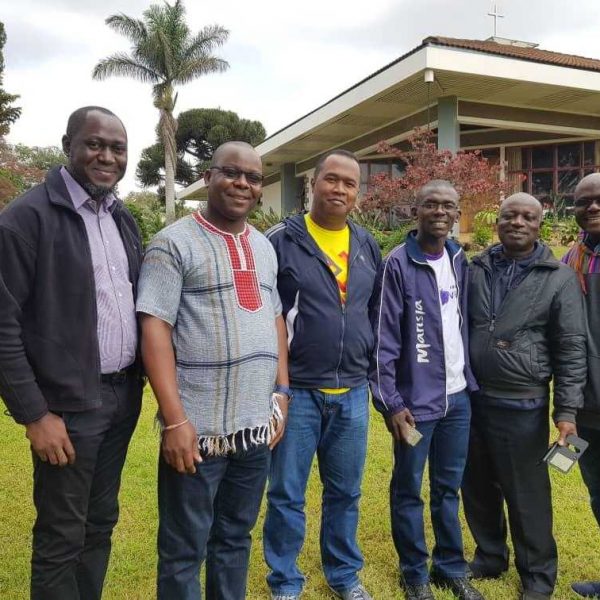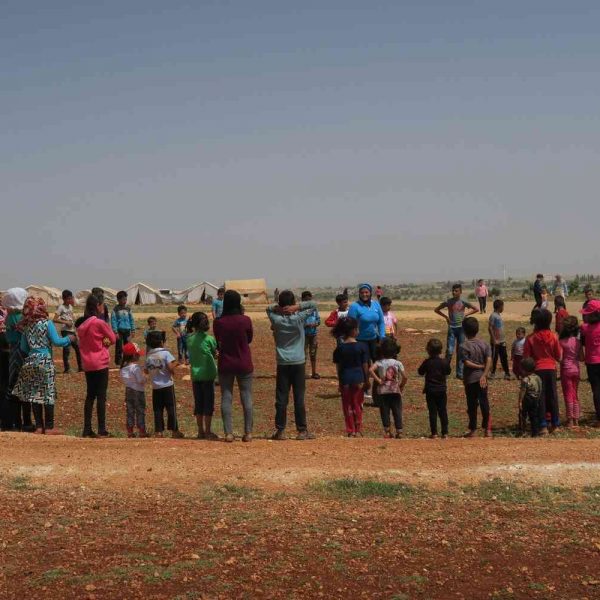The Other Face of Paradise
It is only possible to grasp and fully understand certain socio-environmental situations when you see them with your own eyes and can really touch them. A computer screen-while allows being connected constantly with the whole world-cannot provide the reality of other people’s lives. Doing research, reading and producing data can never be equal to the real encounter with children and schools represented by those statistics. This is what I tell myself every time I get on a plane that takes me to another side of the world.
That is what I was also telling myself during the flight that took me from Rome to Antananarivo, the capital of Madagascar. Despite the widespread and superficial idea one has of Madagascar – expanses of sand and crystal clear waters – the real face of the country is far removed from the Western world’s perception of it. Away from the tourist attractions, one becomes aware of how dissimilar this image is to the reality and experience of its inhabitants.
Madagascar is in fact one of the poorest nations in the world. Despite its productive potential, the socio-economic vulnerability of its inhabitants is steadily increasing. With a GDP in free fall for years now, repeated political crises, and natural and environmental disasters, the country is retreating in terms of development and improvement of the population’s living conditions. This decline is evidenced by the value of the Human Development Index, which, for 2021, stands at 0.501, a factor that places the country in the lowest category on the reference scale (173rd place out of 191 countries).
Education in Madagascar is an urgent and priority need since only one in three children completes Primary education, resulting in 97 percent of children around the age of ten unable to read and understand age-appropriate text. Low enrollment and retention rates in school are due to widespread poverty, early marriages (2 out of 5 girls get married before the age of 18), child labor (47% of children between the ages of 5 and 17 are employed in forms of labor exploitation), and a student-teacher ratio of 40:1 (World Bank 2018). The low educational standard is also partly caused, and certainly exacerbated, by the low level of education of teaching staff, which comes with a 97 percent rate of teachers without a diploma or specific professional qualifications (UNICEF data).
Violence against children is tragically widespread in the country: nine out of 10 are victims of violent discipline. Extreme poverty has given rise to a widespread phenomenon throughout the country, with a clear prevalence in the South: transactional sex. It is an extremely common phenomenon: such inequitable sex-economic exchange is fostered by social structures of gender inequality; girls are still forced to earn money to pay school fees or to support their families.
“Selling daughters is not just a metaphor, because in some regions “women’s markets” still exist (Freedman, Rakotoarindrasata; Randrianasolorivo).
So, I find myself in a very different place from my what I am accustomed; I feel immersed in a dramatically discordant reality. Comparison with the people and situations here is difficult: one has to empathize. To understand, one must assimilate, interpenetrate and allow oneself to be pervaded by the feelings that these places, people and situations arouse. The stories we are told by the locals are sad, touching, yet the children and young people manage to convey joy and love with their enthusiasm for small things, for simple games with salvaged play materials, for the happiness of having us among them. They engage us with their spontaneous gestures; they overwhelm.
The thing that most fatigues me during my travels is not the flight, nor the long hours of layovers or the endless car rides to remote villages. Rather, it troubles me to feel as if I am “wrong” to represent, through objective geographical provenance, a world, the Western world, that the other half, the dispossessed half of the earth, imagines as the best. I feel the discomfort, while infinitely appreciating its contents and intentions, of being at that moment the person arriving from afar, for whom the local community for days is spent in preparing an appropriate welcome, setting up welcoming ceremonies and ingeniously sourcing and wrapping small gifts.
This is what touches the heart most: to know that in the midst of their complicated daily lives there is time and a way to think of other human beings by giving of the little one has, sometimes just the warmth of a smile or a festive dance of greeting. And every time I would like to be me on that stage, I would like to be the one to put them at the center of everything, as I did six years ago by choosing this job. I wish there wasn’t an ‘us’ coming from afar and a ‘them’ waiting. I do the work I most wanted to do, a choice I renew every morning with passion; however, I would like to wake up one day in a world where my work is no longer needed.
“At whatever latitude, we are part of the same community. Every man, every woman, every little one on this planet, wherever they are born and live, has a right to life and dignity. The same rights that we claim for ourselves also belong to everyone else and everyone else. Without exception. Stay human. Even when all around us humanity seems to be lost.”
Vittorio Arrigoni



